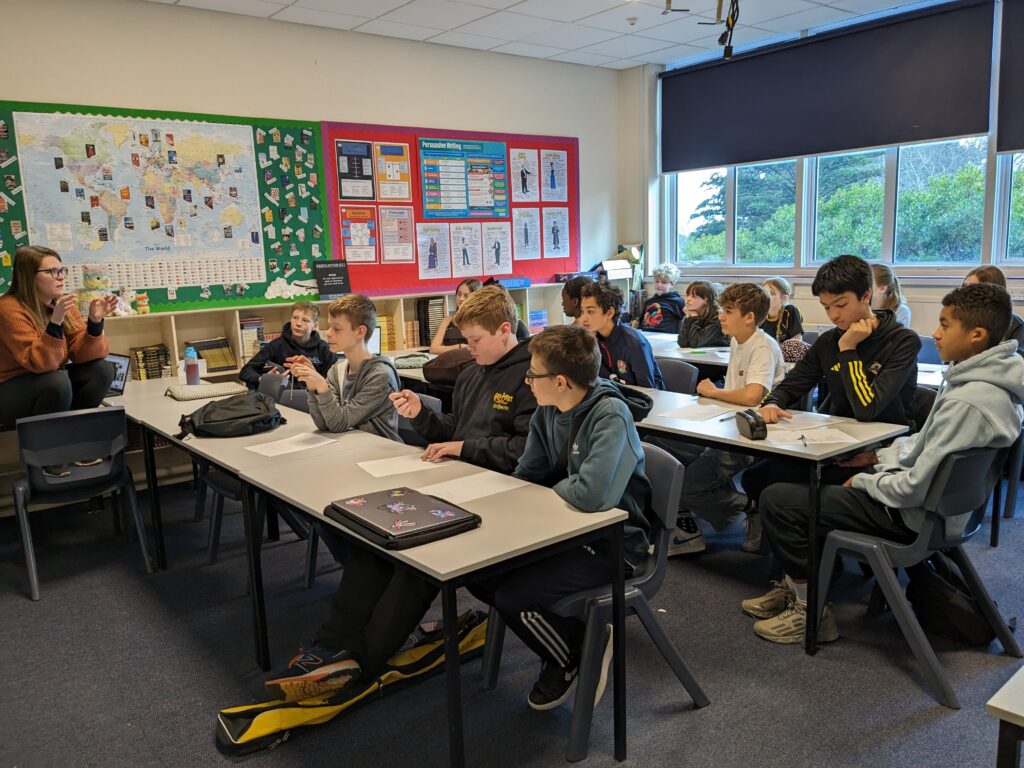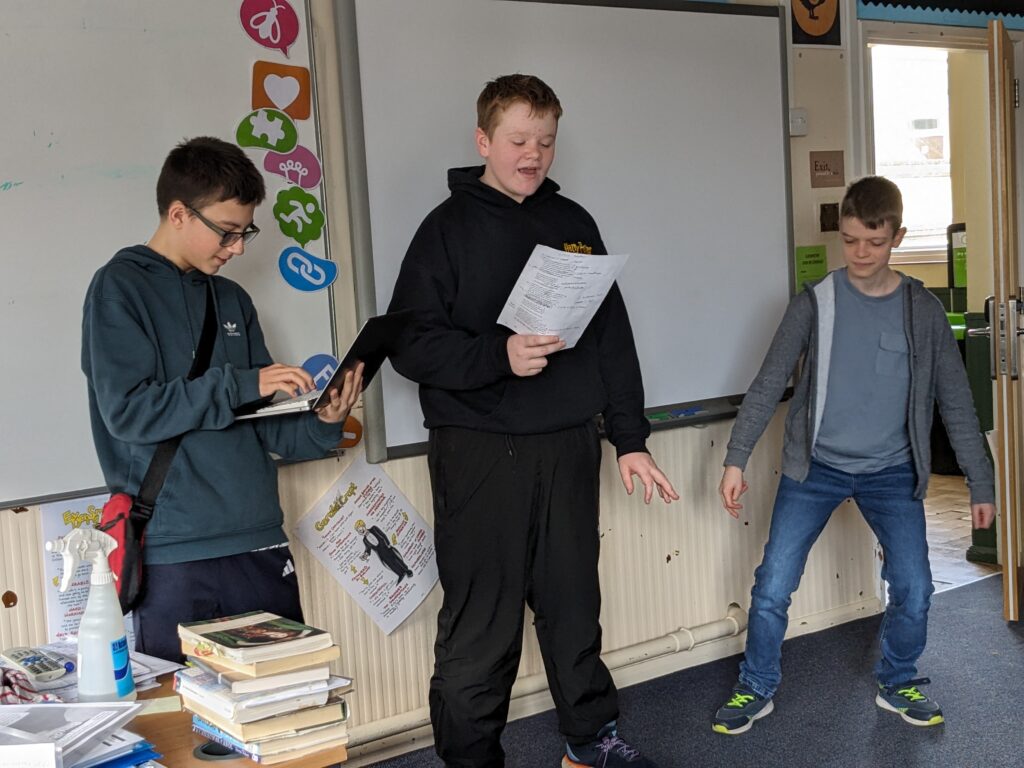Saturday saw the second of this term’s Faculty Extension sessions (for scholars and invited others). Year 7-9 pupils were treated to an English session where they were making an analysis of different genres of songs and their lyrics. The students’ ideas were thoughtful and imaginative – it is a shame they couldn’t ask White Lies, our band of inspiration, whether the students were right! No matter though, as the students were then challenged to write (and perform!) a piece in one of the genres. Rap, Pop and everything in between; it was quite a spectacle.
Years 10 and 11 were running all over the school completing a team maths challenge / treasure hunt where they had to unravel cryptic clues to find the location of their next puzzle. These puzzles, covering a wide variety of maths topics, had to be solved before the next location could be found. The competition between the teams was tight, points were won or lost depending on the quality of the solution and whether a hint (or two, or more!) were required. All the teams worked really hard on the puzzles with fierce competition right up until the final minutes of the session.
The Sixth Form students engaged in a rigorous ethical discussion on the Holocaust, examining the historical, religious, and philosophical dimensions of the atrocity. A key philosophical focus was the concept of the Banality of Evil, exploring how ordinary individuals became complicit in extraordinary crimes. The discussion then expanded to consider the role of propaganda, indoctrination, and terror in Nazi Germany, analysing whether these factors contributed to societal participation in or passive acquiescence to the regime’s actions. Students critically evaluated the responsibilities of various individuals and groups, including Hitler, Eichmann, SS officers, and train drivers, in order to distinguish between perpetrators and bystanders and to assess degrees of culpability.
Our extension sessions are a great opportunity for pupils to be stretched to consider ideas and materials they might not otherwise tackle in their timetabled lessons, as well as working with other pupils (from different year groups for example) who they might not see in a classroom.






















